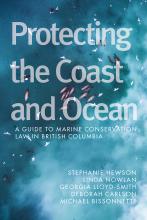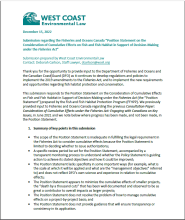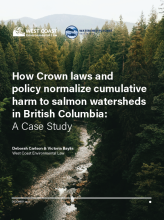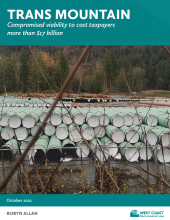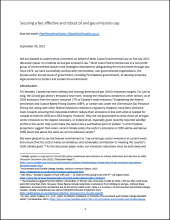Publications
Browse our recent publications, including reports, briefs, submissions to government, and other materials.
Use the search criteria to filter by topic, date, author and/or keywords.
Publication Date: September 2023
Pages: 9
Topics: Climate change, emissions cap, oil and gas emissions
Publication Date: July 2023
Pages: 3
Topics: national marine conservation areas, marine protected areas, minimum protection standards
Publication Date: June 2023
Pages: 200
Topics: Land; Conservation; Private options
Publication Date: June 2023
Pages: 300
Topics: Marine Protection, Coastal and Ocean Laws
Publication Date: April 2023
Pages: 10
Topics:
Publication Date: January 2023
Pages: 4
Topics: fish, fish habitat, ecologically sensitive areas
Publication Date: December 2022
Pages: 8
Topics: Fisheries Act, Fish Habitat, Cumulative Effects
Publication Date: December 2022
Pages: 54
Topics: Watersheds, salmon, fish passage, salmon infrastructure
Publication Date: October 2022
Pages: 36
Topics: Trans mountain, pipelines and tankers, climate change
Publication Date: September 2022
Pages: 6
Topics: Oil and gas emissions, climate change
